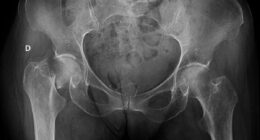By Chris Riches
Also known as allergic rhinitis, hay fever causes sneezing, congestion, itchy nose, and watery eyes but doctors say you can find relief with lifestyle changes, allergy medications, and immunotherapy.
Experts say more than 90 per cent of hay fever sufferers are allergic to grass pollen and the condition is one of the most prevalent allergies in the country, affecting an estimated one in two Brits every year.
Symptoms typically occur when the pollen count is at its highest – during warm, humid, and windy weather.
What Is A ‘Pollen Bomb’?
A pollen bomb happens due to a surge in levels after grass grows rapidly in a hot spring, only to have its pollen release hindered by weeks of rain – as we have had in 2024.
A ‘pollen bomb’ can be a massive release, sometimes resembling smoke, traveling through the air from grass or trees that have stored huge stacks of pollen.
What Are Hay Fever Symptoms?
Nasal stuffiness or congestion which causes sneezing and runny nose; itchy nose, throat and eyes; red and watery eyes; headaches, sinus pressure, and dark circles under your eyes; mucus in your nose and throat; tiredness and fatigue – and constant wheezing and coughing.
What Quick Tips Can Lessen It?
Wear a mask, wraparound sunglasses and a hat with a peak to keep pollen out your eyes and face. On high pollen days shower or bath, wash your hair and change your clothes frequently.
Keep windows closed, especially in the early mornings when pollen is being released and, in the evening as the air cools. Avoid mowing lawns or drying clothes/linen outside.
What Medications Can Help?
Antihistamines are usually available with a prescription or over the counter and work effectively by blocking the histamine that your body releases during an allergic response.
Decongestants help relieve congestion in your nose and sinuses – while corticosteroid nasal sprays and inhalers reduce inflammation and relieve symptoms of hay fever.
During an allergic reaction, your body releases leukotrienes, histamine, and other chemicals that cause inflammation and hay fever symptoms. Leukotriene inhibitors block this leukotriene.
Meanwhile, immunotherapy helps your body learn to tolerate allergens – with the help of allergy shots.










